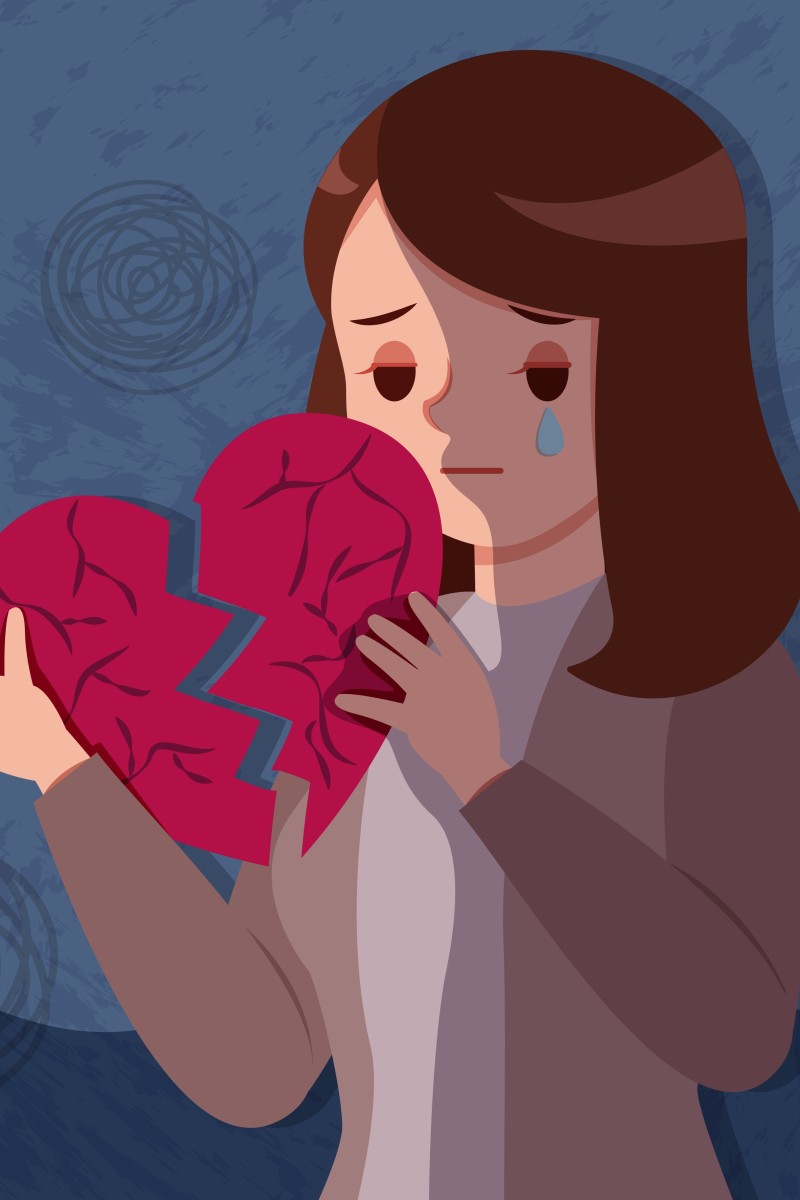
How to get over your first breakup, and what you can learn from it
- A teen life coach gets to the heart of how our first relationships affect us, and how to move on when they end
- It may feel like the end of the world, but it’s definitely not! Make sure to put your growth and healing first
 Break ups are tough, but you CAN get through this!
Break ups are tough, but you CAN get through this!If there’s one thing most people can agree on, it’s that going through a first breakup is crushing. Whether you’ve been together for four months or four years, it can feel impossible to pick up the seemingly broken pieces of your life.
Cyndy Etler, a certified teen life coach, gets to the heart of how our first breakups affect us, and what lessons we can learn.
According to the author of two award-winning young adult memoirs, Dead Inside and We Can’t Be Friends, our memories of our first love can last a lifetime. Even if both people agree that ending the relationship is for the best, it will be painful and confusing.
Why crying is good for your mental health
“The pain of losing an intimate connection is raw and brand-new. It can be emotional ... when you lack experience on how to [deal with] feelings of anger, sadness and regret,” Etler said.
Most adults recall teenage heartbreak as the event from their youth that affected them most. She said that’s because during our teenage years, we are gaining more independence from our parents, and connecting more with our peers – which is how most relationships begin. And when a friendship turns into romance, the pain of losing that connection is very real.
Go ahead and mourn the loss of your relationship - it's a healthy and important part of moving on.
That said, some of us take longer to heal from breakups while others seem to move on more easily. Etler explained that it depends on our needs and personalities.
Those who are shy tend to focus more on their relationship and have a smaller circles of friends. So if the relationship or friendship ends, it will affect them more.
For outgoing teens, they might try to fill the emptiness after a breakup by spending more time with peers. As a result, they may form new relationships more quickly.
Self-care ideas to show yourself some compassion
But it’s not just about someone’s personality – Etler said that teens who don’t have close relationships with their family and friends, are more likely to rely on their partners to fulfil a deep connection.
Sharing about her own life, she said: “As someone who came from a broken home, I speak from experience when I say that for a teen who lacks strong healthy [friendships] or familial relationships, a first breakup can feel like the end of the world.”
But as much as they hurt, breakups are an important part of life, and they teach us key lessons as we become adults.
How to fix relationships damaged by Covid-19
“It’s never fun to realise that happily-ever-after fairy tales are just tales, but these [realisations] build maturity,” Etler said.
You might be eager to close that chapter of your life. But once the worst of the pain has passed, it’s a good idea to sit down and reflect on what happened and how you can grow from the experience.
Think about what really caused the breakup, and how you might change your approach to dating in the future. Ask yourself if there are certain personalities that you don’t get along with, so you can avoid those in future relationships. Most likely, you will realise you now have a better idea of what you’re looking for (and avoiding) in your next relationship.
This experience can help you learn more about the traits you need in a partner in the future.
Another important lesson is learning to take responsibility for your actions – even if this isn’t often shown in popular media.
“In films, books, anime and even music... someone plays the villain, and the other is the victim. But in reality, it takes two hands to clap,” Etler added.
If you want a helpful understanding of why the relationship didn’t work out, begin by reflecting on whether you played a part in how things went wrong.
How to balance dating and the DSE
But this advice doesn’t apply to all relationships, especially if your ex-partner didn’t treat you well. If they said hurtful things or even used physical force, remember you didn’t do anything to deserve that. It wasn’t a healthy relationship, and you should be proud of yourself for walking away.
Regardless of why the relationship ended, Etler strongly suggested speaking to a trusted family member, close friend or expert to talk about the breakup, and what steps you want to take next.
How to be happy for others, even when you’re jealous inside
“This could range from recognising you’re more suited to be with someone who can match your interests, you’re better off in a drama-free relationship, or that you’re just happier alone at this [time] of your life.”
Whatever you decide for yourself after a breakup, just remember to think of what’s best for your growth and healing.
